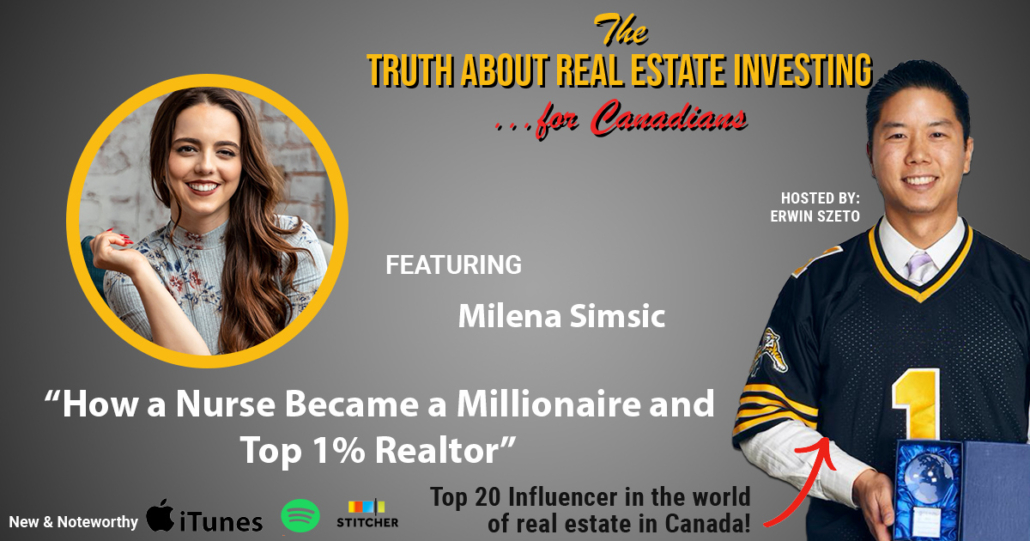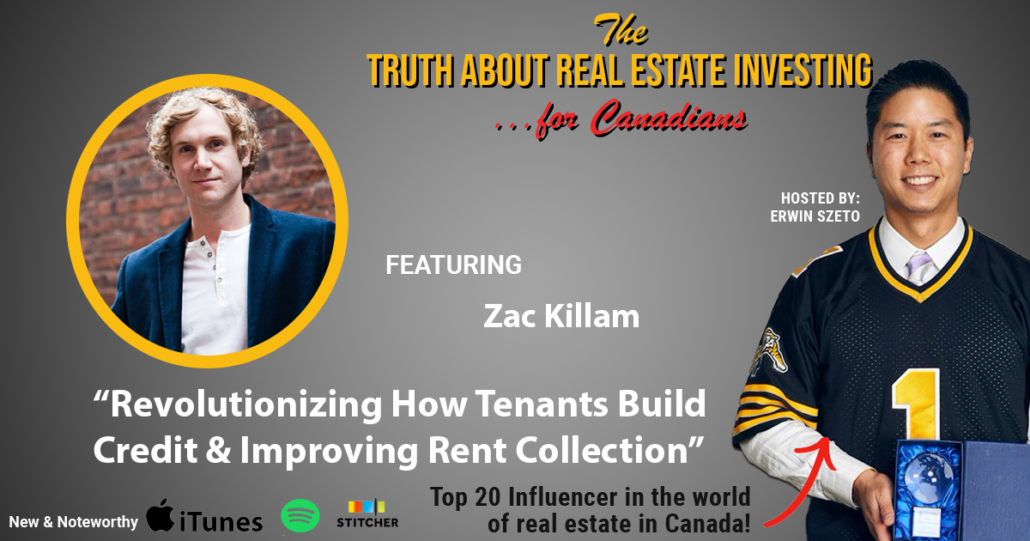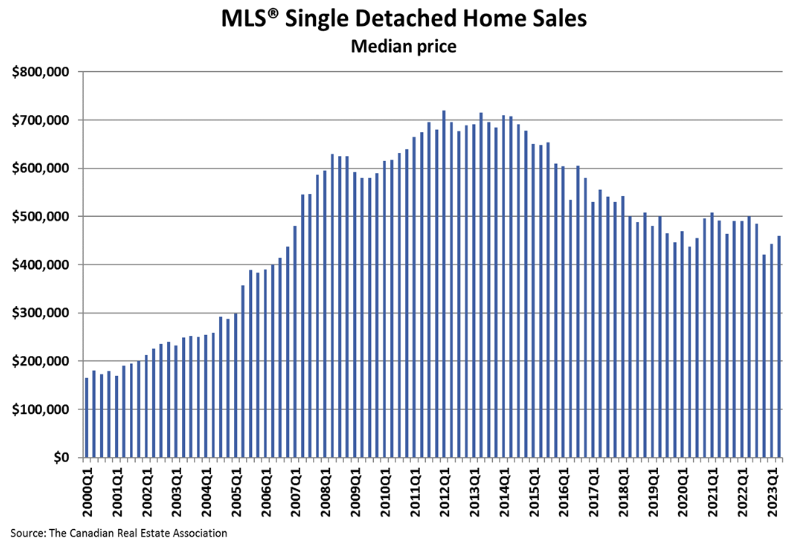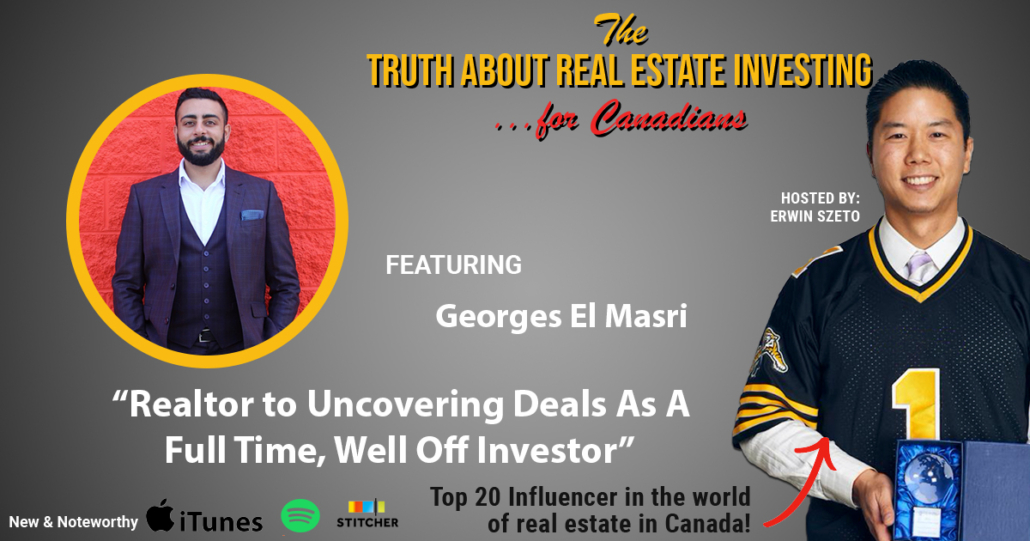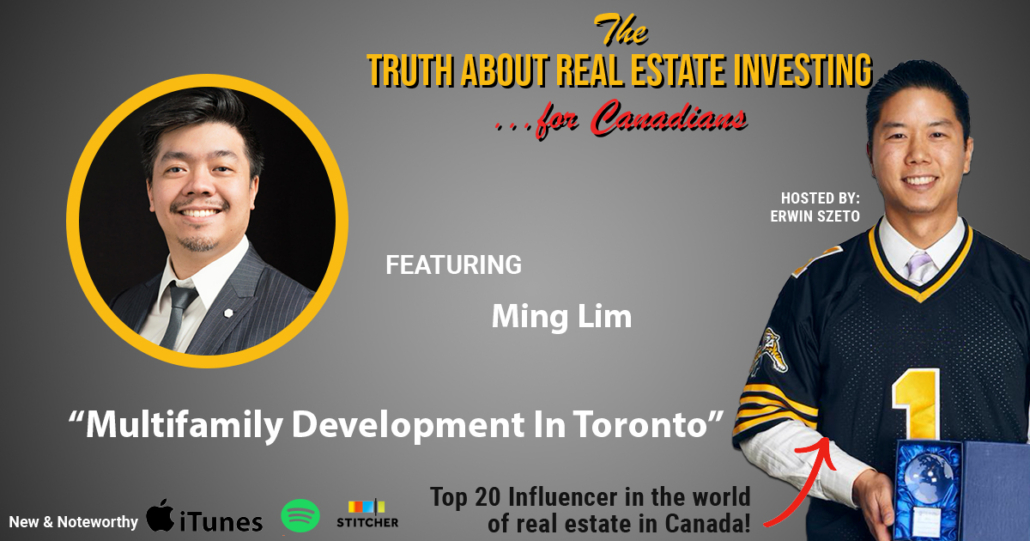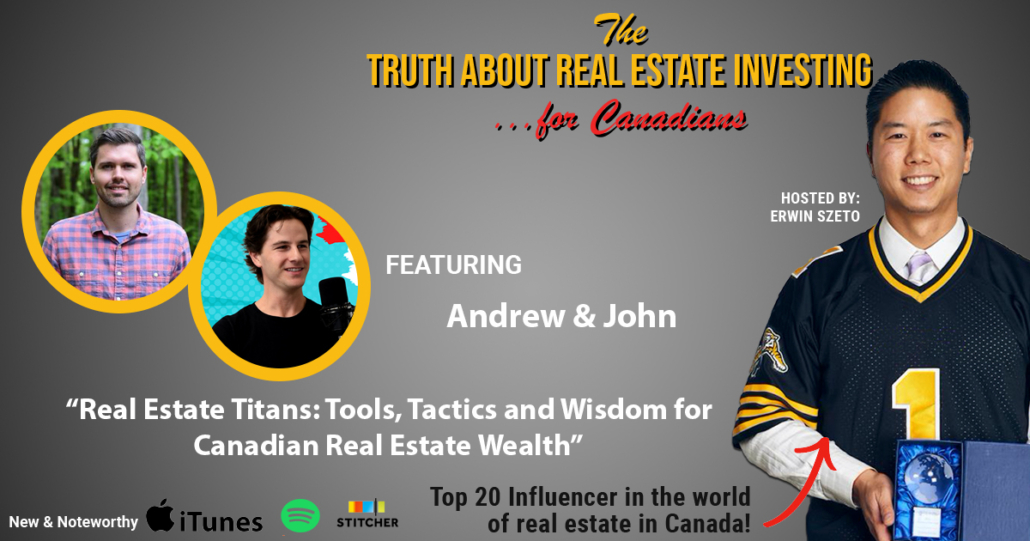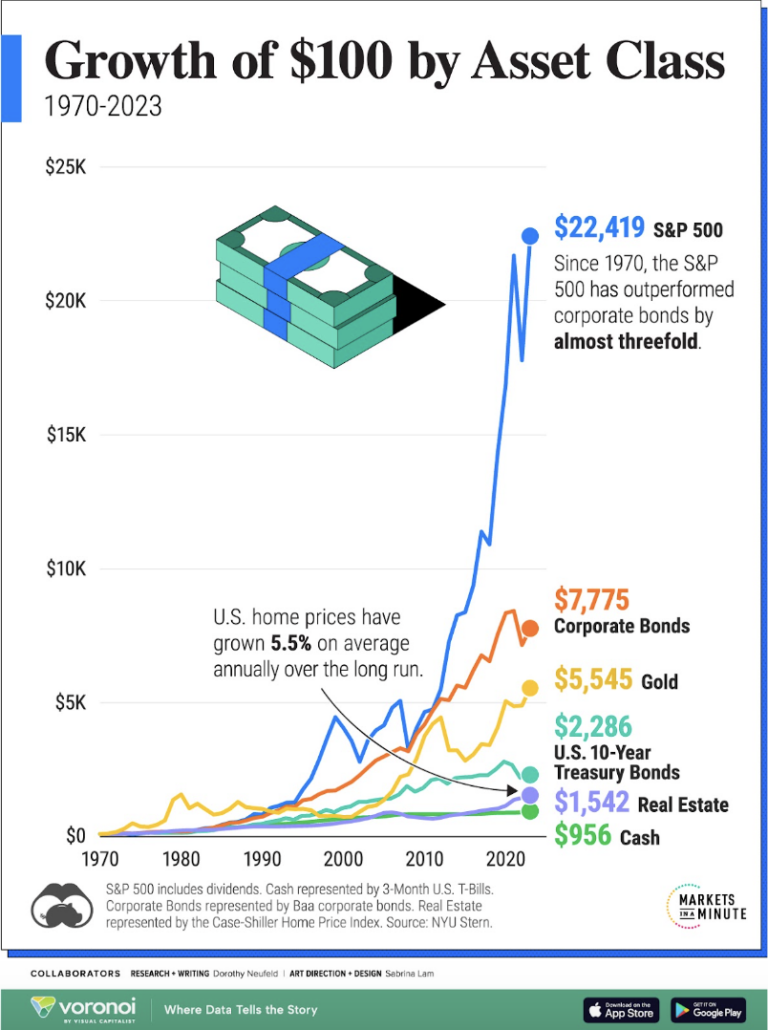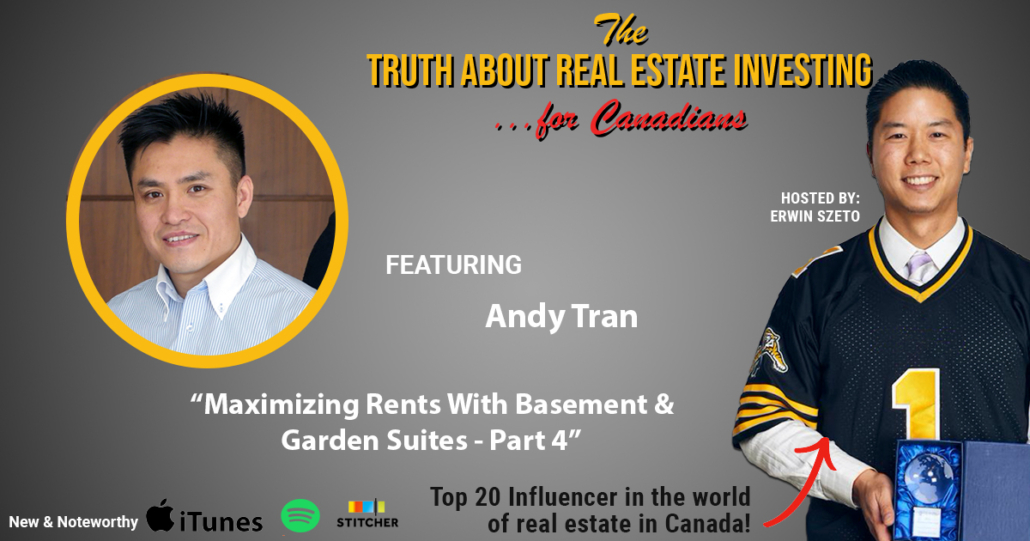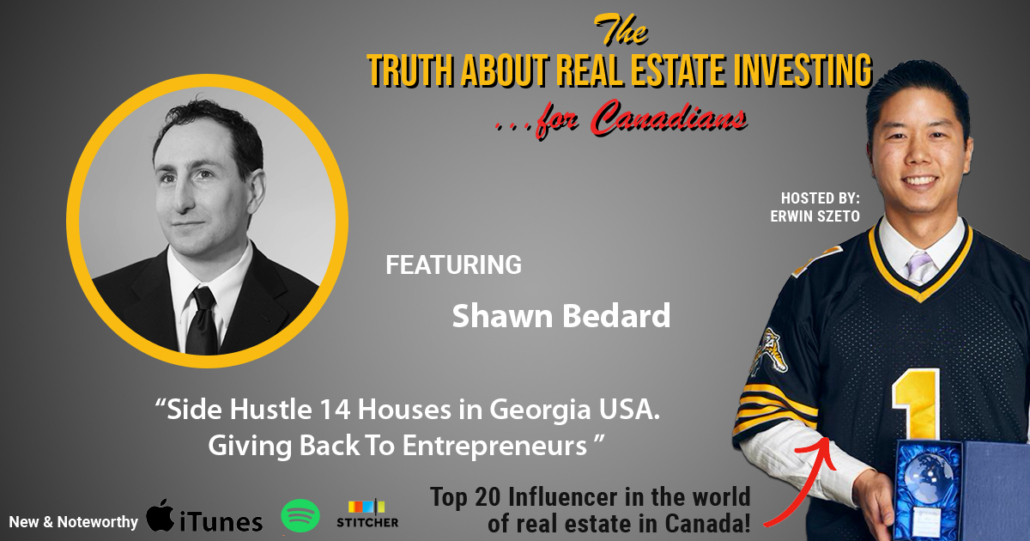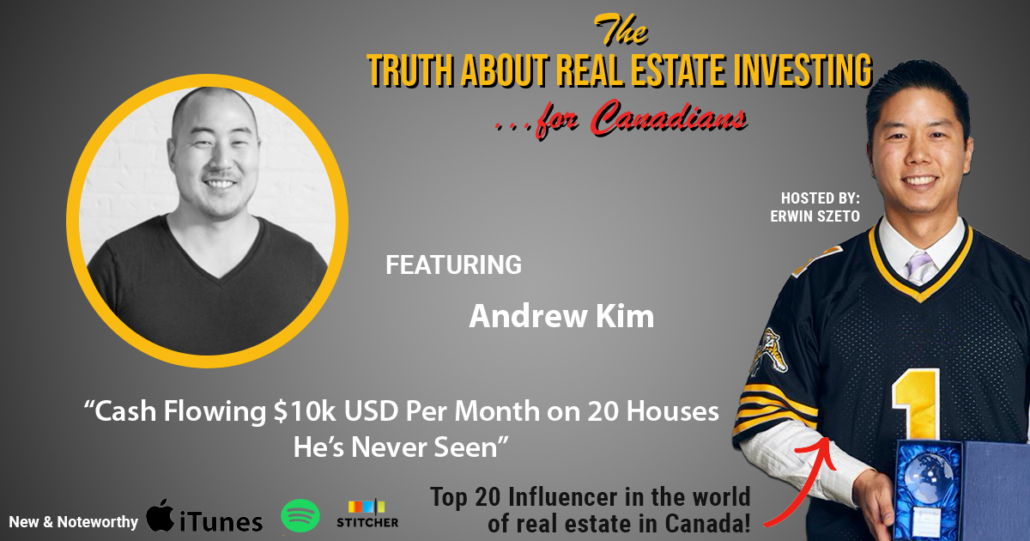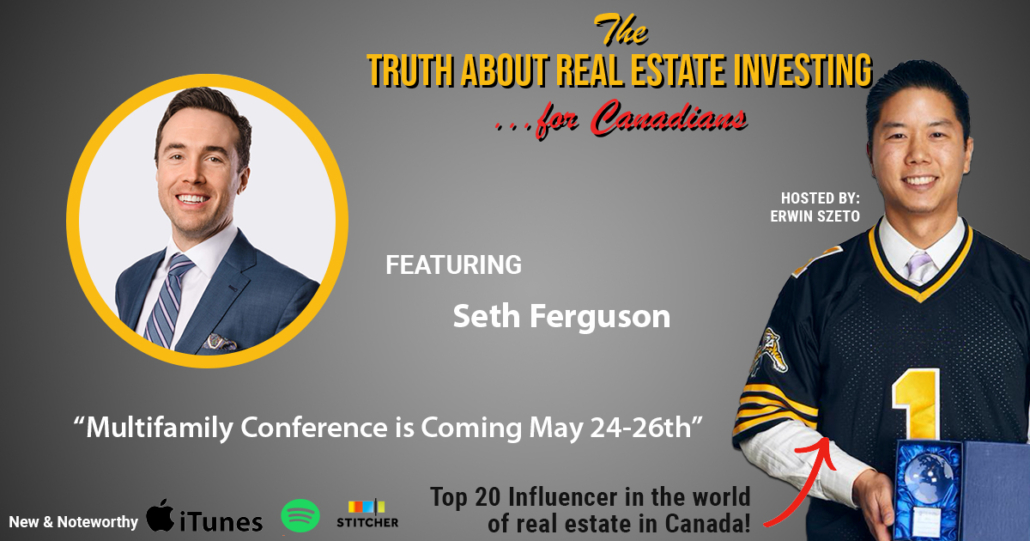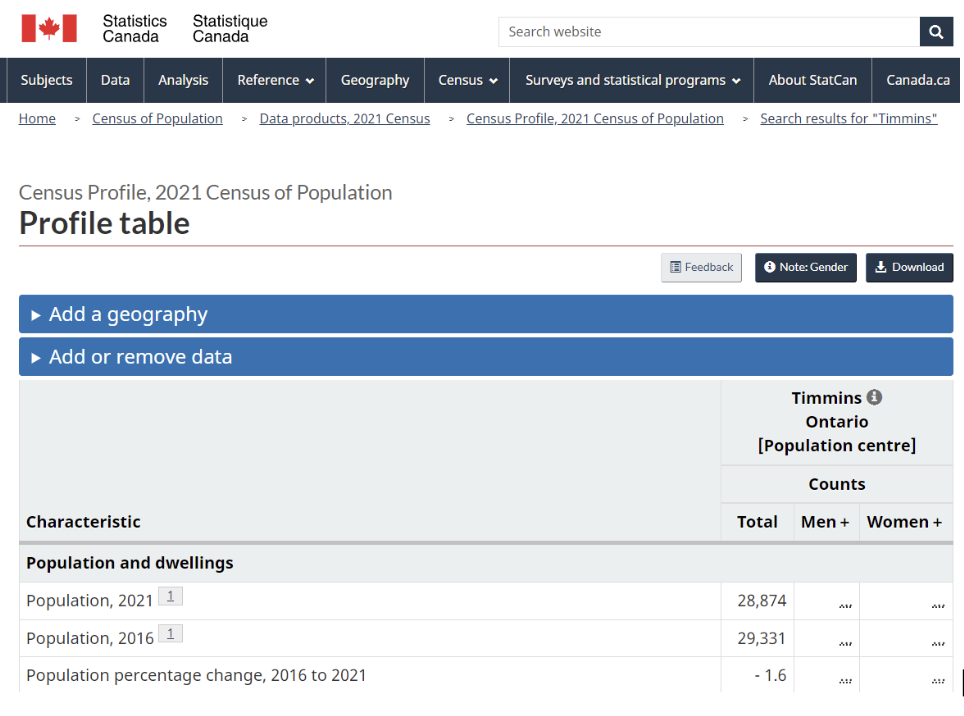From International Student to Stock Option Investment Coach and USA Apartments With Cody Yeh
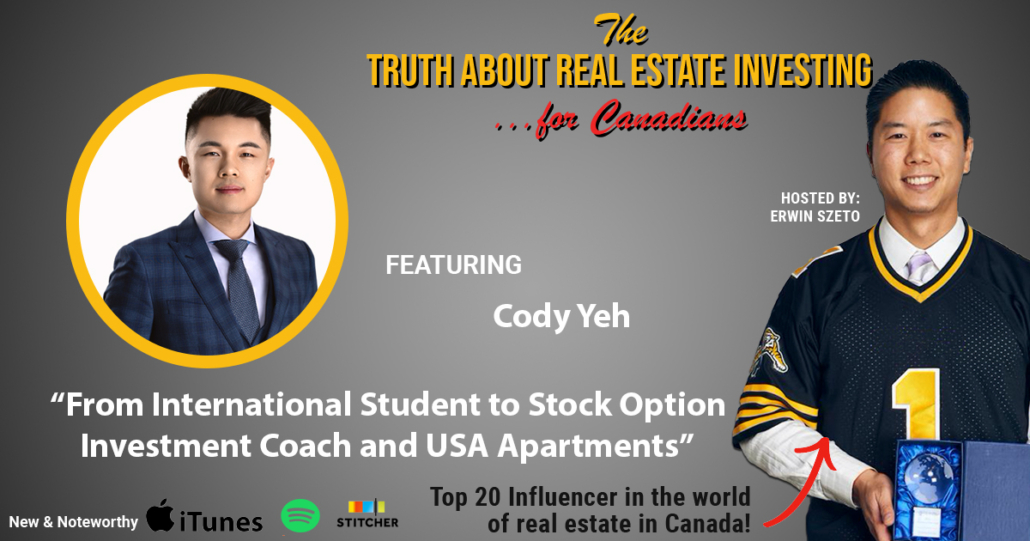
What a week: we had a rate cut, I sold my daughter’s house, I got into a heated disagreement with another agent who doesn’t understand contract law, and hosted a sold out US Investing Workshop. Our best ever in my humble opinion.
We also have a great guest this week. What can we say about Cody Yeh other than he’s a young hustler. In a good way! He used to work as an Engineer for Honda in Alliston, invested in real estate, built and AirBnb’s a garden suite, quit his job, started a stock option education and coaching company, built and Airbnb’s a massive garden suite in Bowmanville, Ontario. He’s lived all over Ontario now he’s bought an apartment building in Ohio.
All this and more on the Truth About Real Estate Investing for Canadians!
How much fun is this real estate market?
We finally got a rate cut of 0.25% as the Bank of Canada is finally signalling the economy is as weak as everyone knows, one of the weakest among the developed countries, there are more condos being listed than ever before, local investment buyer activity still seems lows while my business in the USA investing in single family houses is going quite well.
I literally met with my clients on the weekend Mason and Melissa, not their real names. My team had been helping them find a duplex in Welland, ON, a hot spot for many Ontario investors in the $650,000 range that would rent for about 3,400-3,500 per month.
Mason shared how he didn’t feel right about the investment until he saw what we are doing in the US with SHARE and has since purchased a perfect BRRRR project off market via a wholesaler SHARE has a relationship with, the wholesaler actually wanted the house for himself as this house in Atlanta was a projected 6% cap rate which is a very rare find. In a single family house nonetheless.
If you’re not familiar with cap rate that’s totally normal, it’s short for capitalization rate, a common metric for commercial real estate: apartment buildings, retail, office, and industrial.
It’s simply your rent minus operating expenses like repairs, maintenance, property management, bad debt, property taxes, insurance but before mortgage payments and income taxes. This is called net operating income or NOI for short. Keep in mind, many listings leave out expenses for I don’t know what reasons like bad debt, the tenant not paying you, property management, repairs and maintenance. I literally reviewed projected financials for a duplex in Brantford that quote/unquote cash flowed over $700/month so I dug into the numbers and yup, omitted were property management, repairs and maintenance, bad debt and vacancy allowance.
Now divide the NOI by the purchase price AND the initial renovations
You as the sophisticated investor need to be able to read pro forma, aka future performance financials. One can youtube better explanations with visuals and learn how to compare. Don’t let someone dupe you into paying top dollar for something with incomplete financials.
At the end of the day, Mason and Melissa got a sweet deal as I don’t know where you can find a six cap in a large, economically diversified city like Atlanta, GA in Canada. For context, if Atlanta, GA was in Canada it would be the 2nd largest city based on great area population.
Real estate investing in the USA simply makes sense to have the majority of the rights. For example, in the State of Georgia, the lease agreement may set reasonable limitations on the number of occupants during the tenancy. Pets and smoking can be restricted or banned in the rental agreement. In practice, some landlords charge extra rent for each pet depending on size.
In Ontario, I have no such rights. I literally had a tenant, a single guy moved in, a trucker so he made great income and wouldn’t be at the house much, the perfect tenant. Then his girlfriend moved in and bred puppies in my duplex. My poor basement tenants rightfully complained about the smell and noise but legally, I couldn’t do anything about it. I suggested to my basement tenants to call the city and police to complain.
The tenants with the puppies even left for a day, leaving the puppies in the house to cry all day and night, defecating all over the place and disturbing my poor basement tenants.
Versus in Georgia, my lease word be worded to allow me to charge for additional occupants and pets and limit the number of both.
Hence the reason I’m selling off a portion of my portfolio to reduce my stress, improve cash flow.
Speaking of, my daughter’s house is sold and it closes before the June 25th deadline before capital gains inclusion rate goes up on corporate owned investments. Doing so saves me close to $50,000 in income taxes.
The sale took me three weeks. I was honestly expecting a better market since everyone knew the rate cut was coming, my duplex is legal, move-in-ready, vacant and staged. As good as it gets but the buyer activity was so slow. Showings were slow, I only received three offers, all I considered low but thanks to my 14 years of experience being an investor specialist Realtor and having studied negotiations extensively, I stood my ground on my terms and got quite close to it.
Funny story, the agent who brought the winning offer did his due diligence on me. He knew me as Mr. Hamilton from his REIN days. The importance is my branding gave him and his clients a lot of comfort over the quality of the house they were buying. This mattered because the City of Hamilton had been hacked so I can’t easily get my zoning verification to prove the legal use of my daughter’s house, a legal two family home or as most call it, a duplex.
I did have my permits, proof my permits were closed, ESA certificate, proof of insurance for a two family house but my word and reputation is what sealed the deal.
Now that I have sold four houses from our portfolio, I have some capital to deploy down south. We still have a significant amount of real estate in Hamilton and GTA so we’re still well poised to benefit from appreciation but not so much cash flow so we are refocusing my search for US income properties with better yield and cash flow so my new focus will be on Memphis, TN, Birmingham, Alabama, Kansas City, MO, and Little Rock Arkansas.
Basically, 6 cap rates and up. I can’t wait! To start researching each city 🙂
From International Student to Stock Option Investment Coach and USA Apartments With Cody Yeh
On to this week’s show!
Cody Yeh arrived in Canada at the age of 18 on a student visa, initially lacking knowledge in income and wealth creation. Over the past 11 years, Cody has undergone a significant transformation, evolving from a student to a full-time project manager, and eventually to a financial coach, real estate investor, and stock options investor. The skills he acquired during this period enabled him to leave his full-time job at the beginning of 2020.
Cody now has a stock options investing program and he’s buying apartment buildings in the USA. It’s quite the journey.
To follow Cody, his website is his name Codyyeh.com
Please enjoy the show!
To Listen:
** Transcript Auto-Generated**
On iTunes: https://itunes.apple.com/ca/podcast/truth-about-real-estate-investing…/id1100488294
On Spotify: https://open.spotify.com/show/6Z8yd37AQfQI5DK0J0Xwzz
Audible:https://www.audible.ca/podcast/The-Truth-About-Real-Estate-Investing-for-Canadians/B08JJS91WR
Youtube: https://youtu.be/l51IPiOVRPg0HELP US OUT!
UPCOMING EVENTS
BEFORE YOU GO…
Before you go, if you’re interested in what kind of properties I am looking at in the landlord friendly states of the USA please go to iwin.sharesfr.com for what I consider the best investment for most Canadians, most of the time.
I’ve been investing in Ontario since 2005 and while it’s been a great, great run. I started out buying properties in the 100,000s and now it’s $800,000 to $1,000,000. How much higher can it go? I don’t know
To me, the remaining potential for appreciation does not match the risk hence I’m advising my clients to look to where one can find rental properties that are affordable range of $150,000 to $350,000 US$, with rents that range from $1,400 to 2,600/month plus utilities. As many Canadians recognize, these numbers will be positive cash flow and are night and day compared to anything locally. Plus the landlord has all of the rights, no rent control, and income is US dollars which are better than Canadian dollars.
If you don’t believe me, US dollars are better than Canadian dollars, go ask 100 non-Canadians which currency they prefer to be paid in.
So to regain control of your retirement planning. Go to iwin.sharesfr.com and check out what great cash flow properties are available in the USA.
The best part is, my US investments will be much more passive compared to by local investments as I’m hiring an asset manager called SHARE to hand hold me through the entire process. As their client and shareholder, Share will source me quality income properties, help me with legal structure and taxes, they manage the property manager and insurance provider while passing down to me preferred rates so I save both time and money.
Share will even tell me when to strategically refinance or sell. SHARE can even support investors all over the country for proper diversification hence my plan is to own in Tennessee, Georgia, and Texas. Share is like my joint venture partner but I only have to pay them fees while I keep 100% ownership and control.
If your goal in investing is to increase cash flow, I don’t know of a better strategy for most Canadians most of the time. One last time that’s iwin.sharesfr.com to see what boring, cash flowing real estate investing can look like on your path towards financial peace.
This is how I’m going to make real estate investing great again for my family and hope you choose the same. Till next time!
Sponsored by:
This episode is brought to you by me! We don’t have sponsors for this show. I only share with you services owned by my wife Cherry and me. Real estate investing is a staple in my life and allowed me to build wealth and, more importantly, achieve financial peace about the future, knowing our retirement is taken care of and my kids will be able to afford a home when they grow up. If you, too, are interested in my systematic strategy to implement the #1 investment strategy, the same one pretty much all my guests are doing themselves, then go visit www.infinitywealth.ca/events and register for our next event.
Till next time, just do it because I believe in you.
Erwin
W: erwinszeto.com
FB: https://www.facebook.com/erwin.szeto
IG: https://www.instagram.com/erwinszeto/


